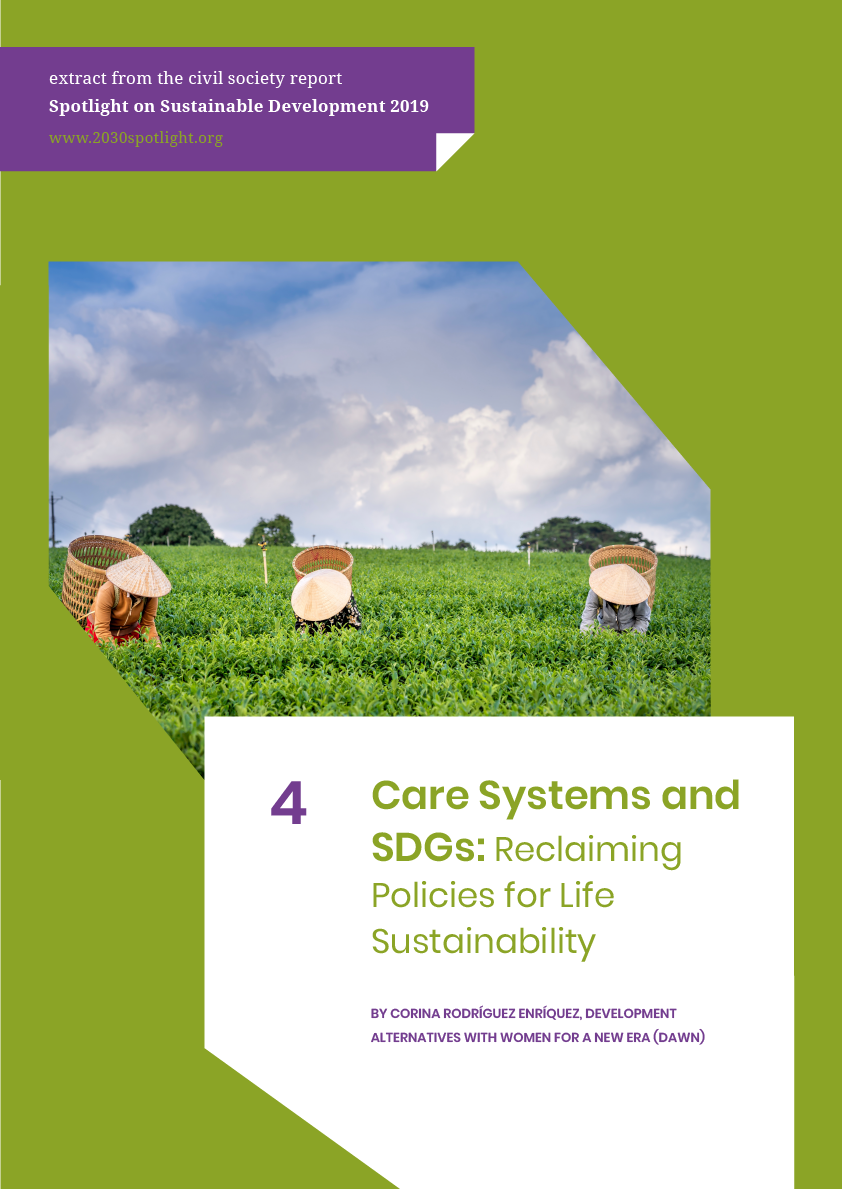Because of its importance to achieving gender equality, SDG 5 calls for recognition and value of unpaid care and domestic work through the provision of public services, infrastructure and social protection policies and the promotion of shared responsibility within the household and the family as nationally appropriate (target 5.4). Beyond this, care is a cross-cutting issue along all of the SDGs.
There is still a huge gender gap in terms of the time devoted to domestic and care activities. The massive burden of domestic and care work on women’s lives is the consequence of what we define as unfair social organization of care. This means an unequal distribution of responsibilities between, on the one hand, the State, market, households and communities, and, on the other hand, between men and women.
Care can be considered as a human right. People have the right to receive care and to provide it under conditions that do not restrict other rights or aspects of life. Thus States must respond with adequate public policies to promote, protect and fulfil this right. Such policies should open up opportunities so that people can choose how they meet their own care needs and those with whom they live, they should take into account the diverse personal and family situations, they should provide access to care for the high number of workers in the informal sector, they should be cross-sectoral and interlinked, they should provide the required budgetary resources, and should assure decent working conditions (including decent salaries) for paid care workers.

